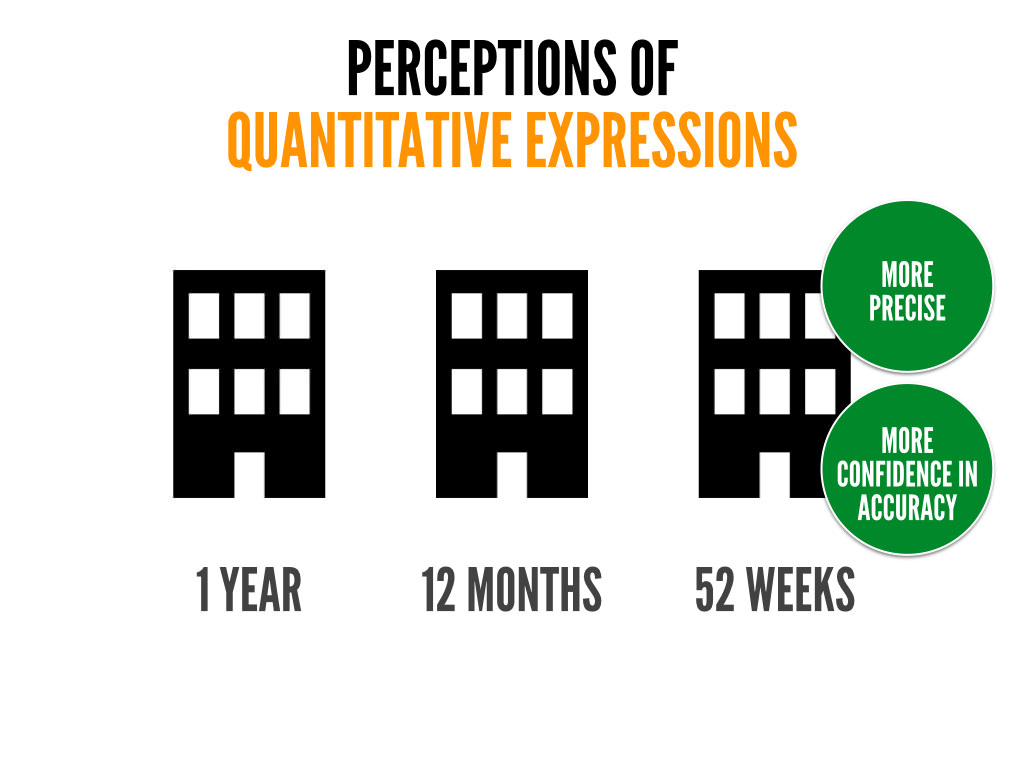Does your business offer a warranty of 1 year, 12 months, or 365 days? Is your product expected to be delivered in 21 days or 3 weeks? Trick question, huh? It’s actually not. While the units are mathematically equDoes your business offer a warranty of 1 year, 12 months, or 365 days? Is your product expected to be delivered in 21 days or 3 weeks?ivalent, academic research in consumer behavior suggests they are perceived differently by consumers.
Imagine you’re discussing a big project with a client and indicate you expect it to be done in 1 year. What if you would have said you expected the project to be done in 12 months? Or 52 weeks?
A recent academic study showed that people are influenced by the choice of units (years vs. months vs. weeks). The research showed that people perceive finer grained estimates (ex. 52 weeks instead of 1 year) as more precise. Furthermore, consumers felt the estimate was more accurate when expressed in more specific terms (52 weeks).

Think about that for a minute. 1 year, 12 months and 52 weeks are mathematically equivalent in terms of unit conversions, yet choosing one over the other may significantly affect how consumers perceive your estimate. Framing the project timeline as “52 weeks” resulted in respondents feeling more confident in the estimate and rating it as more precise.
How do you typically frame your estimates in your business? Why do you choose one way over another? Let me know in the comments!
Sources/Credits:
- Zhang, Y. C., & Schwarz, N. (2012). How and Why 1 Year Differs from 365 Days: A Conversational Logic Analysis of Inferences from the Granularity of Quantitative Expressions. Journal of Consumer Research, 39(2), 248–259. doi:10.1086/662612
- Calendar designed by Laurent Patain from The Noun Project
